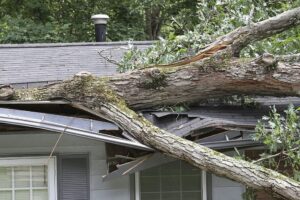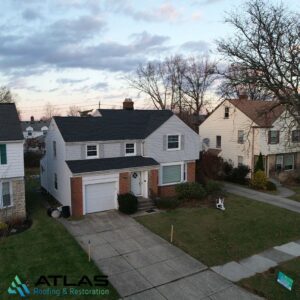Maintaining a commercial roofing system is crucial for extending its lifespan, protecting your investment, and ensuring the safety of the building’s occupants. A well-maintained roof reduces repair costs, prevents leaks, and enhances energy efficiency. Whether your property features TPO, PVC, EPDM, or Modified Bitumen roofing, a proactive maintenance approach is key to long-term durability.
Understanding the Importance of Commercial Roof Maintenance
Commercial roofing systems endure harsh weather conditions, UV exposure, and foot traffic. Over time, these factors contribute to wear and tear, making routine inspections and upkeep essential. Regular maintenance helps identify minor issues before they escalate into costly repairs, ultimately preserving the integrity of the roofing structure.
Benefits of Routine Roof Maintenance
- Prevents Costly Repairs: Addressing small issues early reduces the likelihood of expensive structural damage.
- Enhances Energy Efficiency: A well-maintained roof improves insulation, reducing heating and cooling costs.
- Extends Roof Lifespan: Routine care minimizes premature aging and extends the roof’s service life.
- Ensures Compliance and Warranty Validity: Many manufacturers require regular maintenance to maintain warranty coverage.
Essential Commercial Roof Maintenance Tips
1. Schedule Regular Roof Inspections
Routine inspections, ideally twice a year (spring and fall), allow roofing professionals to assess the condition of the roof and address potential issues. After severe weather events, additional inspections are advisable to detect any storm-related damage.
2. Keep the Roof Clean and Free of Debris
Debris accumulation, such as leaves, dirt, and standing water, can cause drainage issues, leading to leaks and structural damage. Regularly clearing these obstructions ensures proper water flow and prevents premature deterioration of the roofing material.
3. Inspect and Maintain Drainage Systems
Clogged drains and gutters can result in water pooling, which accelerates roof degradation. Ensure downspouts, scuppers, and drains remain free of blockages to facilitate proper water runoff and prevent structural stress.
4. Address Small Repairs Promptly
Minor issues such as cracks, blisters, or seam separations in TPO, PVC, EPDM, and Modified Bitumen roofs should be repaired immediately. Timely patching prevents leaks and moisture infiltration, which can lead to mold growth and interior damage.
5. Protect Against Foot Traffic Damage
Many commercial roofs require regular access for maintenance personnel. Installing protective walk pads in high-traffic areas minimizes wear and tear, reducing the risk of punctures and tears in the roofing membrane.
6. Ensure Proper Flashing and Sealing
Flashings protect vulnerable roof areas such as vents, HVAC units, and skylights. Regularly check for signs of deterioration and reseal areas where needed to prevent water infiltration.
7. Monitor for Ponding Water
Flat commercial roofing systems are particularly susceptible to water pooling, which can cause structural damage over time. Adjusting drainage systems or installing tapered insulation can help prevent ponding water issues.
8. Work with Professional Roofing Contractors
Partnering with experienced commercial roofing professionals ensures your roof receives the care it needs. Certified contractors can conduct thorough inspections, provide expert repairs, and offer tailored maintenance plans.
Signs Your Commercial Roof Needs Immediate Attention
Ignoring early warning signs of roof damage can lead to costly repairs or premature replacement. Look for these red flags:
- Persistent water stains on ceilings or walls
- Visible cracks or bubbling on the roof membrane
- Loose or damaged flashing
- Sagging areas or ponding water
- Increased energy bills due to poor insulation
Choosing the Right Maintenance Plan for Your Commercial Roof
A structured maintenance plan ensures the longevity of your roofing system. Consider the following elements when developing a plan:
- Inspection Frequency: Regular semi-annual checks supplemented by post-storm inspections
- Preventative Repairs: Addressing minor damages before they escalate
- Roof Cleaning and Drain Maintenance: Keeping surfaces and drainage clear
- Record-Keeping: Maintaining detailed documentation of inspections, repairs, and warranties
Final Thoughts
Investing in regular commercial roof maintenance is a proactive approach that safeguards your property and extends the lifespan of your roofing system. Whether your roof is made of TPO, PVC, EPDM, or Modified Bitumen, proper care prevents costly damage and enhances performance.
At Atlas Roofing & Restoration, we specialize in commercial roofing solutions, providing expert maintenance, repairs, and installations. Contact us today to ensure your roof remains in top condition for years to come.




